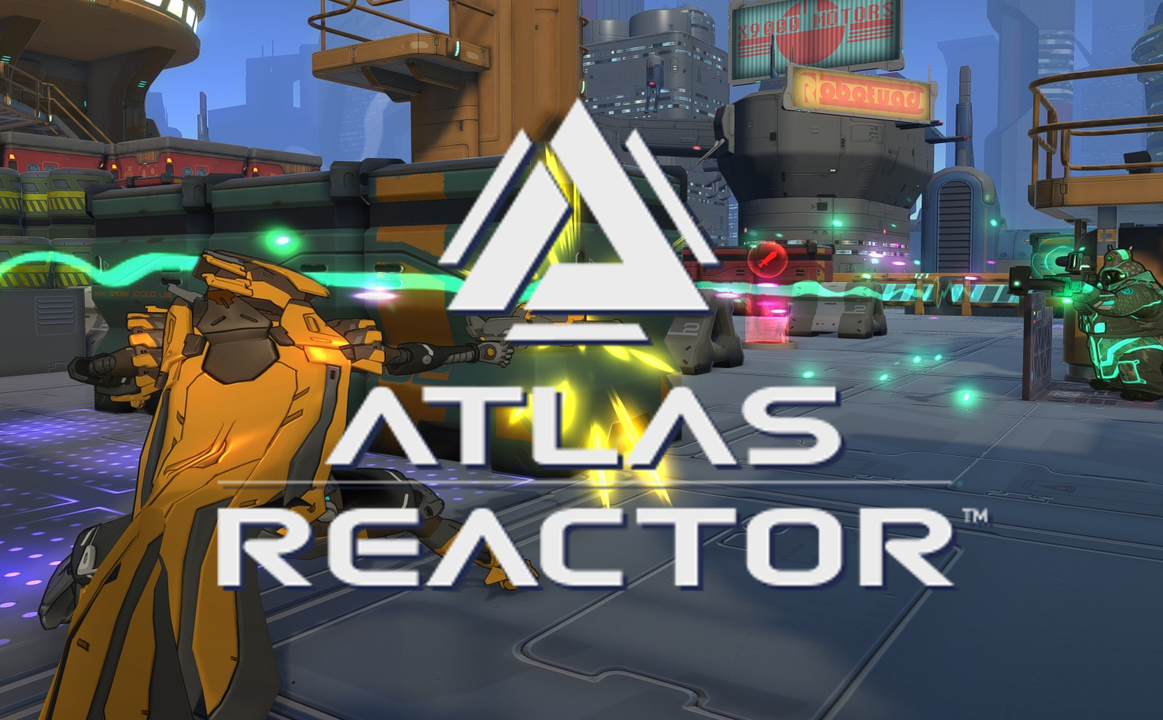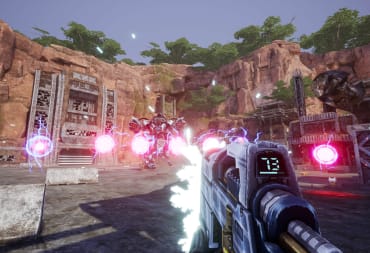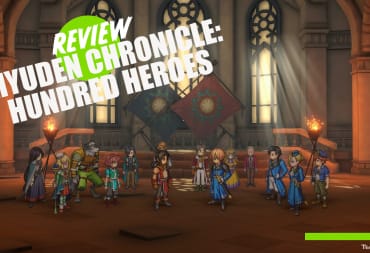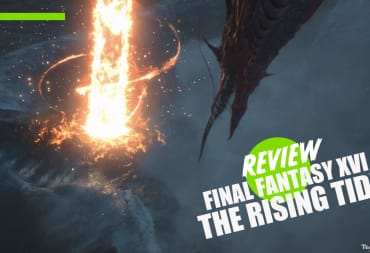When I saw the cartoonish trailer for Atlas Reactor, I inwardly groaned. I played Team Fortress 2 through five years of college, and I knew the formula. A cutesy, racially diverse and spectacularly weird cast of characters meets high-octane, powerful weapons blasting at everyone else in a loosely constructed game world left mostly to your imagination. The first words in my head were likely the same as everyone else's. "Oh great. An Overwatch clone." I noticed the display style of the weapons overlaid on the combat, declaring where they'd attack, and thought there could be an interesting touch of Wildstar mixed into the gameplay, but overall, I thought this would be a team deathmatch-style shoot'em up.
Actually playing the game, I was quickly overwhelmed. The variety of things I had to learn in such a short time nearly dislodged my interest in actually playing. Atlas Reactor's tutorial doesn't do a spectacular job of introducing to you what the actual matches will feel like. It starts out making you think that it's an XCOM multiplayer game complete with cover and careful attacks, and then it tosses you into an AI match and all hell breaks loose. I struggled through a match or two, barely keeping up with the fast pace of each turn with my starting character, Lockwood, before I really started to understand what I was doing. Then, the moment it clicked, I was hooked.
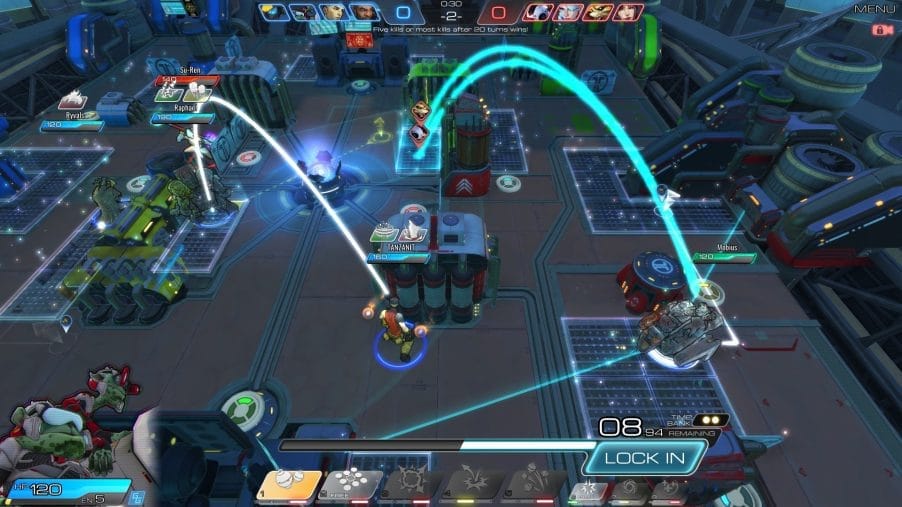
Atlas Reactor is a genuinely unique game with the unfortunate side effect of being compared to a hundred other games that aren't really similar at all. It has a cartoonish cast of characters, like Overwatch or Battleborn with hints of cell shading to further display the lack of realism. It has similar mechanics to the new set of XCOM games. It has an area of effect system and character progression similar to League of Legends. However, it is none of these things, and despite being proud of that fact, it's very difficult to separate it from those comparisons until you're actually in the thick of the bomb-lobbing gremlins and living nuclear accidents.
Once I understood the game, I found myself having a difficult time explaining it here. Even a screenshot doesn't do it justice, as there are many nuances that increase the complexity a hundredfold. In short, it's a turn-based team deathmatch game. At its most basic level, you make decisions on each turn that will move your character, use various abilities, or fire very large weaponry. At the same time, everyone else, on both sides, are making these same decisions. Once the turn is over (and you have a very short amount of time to decide what you will do), all of your decisions will play out, creating a chaotic and explosive war zone as you watch players dodge, fire, explode, and taunt each other across the level.
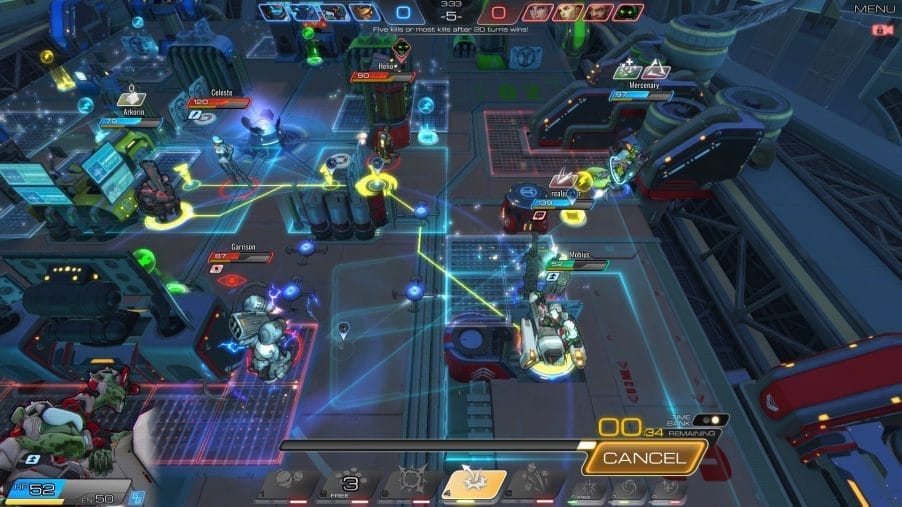
Each turn actually consists of a few phases that will play out in a specific order, and your abilities are designed to work at these separate phases when a turn plays out. For example, you might decide to simply fire your main weapon in a certain direction and then move your character in another direction. When the turn plays out, you'll fire during the phase dedicated to that ability, and then you'll move during the phase dedicated to each character's movement. Or, as another example, you might decide to use an ability that allows you to dodge another character's primary weapon. When the turn plays out, before anyone is allowed to fire weapons, you'll dodge or tumble or rocket-boost yourself out of harm's way, and then the enemy will fire a weapon at empty space.
In this way, Atlas Reactor creates multiple levels of players bluffing each other, setting up incredible displays of powerful, teamwork-based attacks, and general mayhem. Many characters come with abilities dedicated to pressuring enemies into making decisions that will be in their teammate's favor, such as mines, area of denial drones, and energy walls. Shepherding an enemy into your team's ultimate ability is an incredibly rewarding feeling, just as firing wildly and accidentally hitting a cloaked enemy can make or break the enemy team's maneuvers. Each time you use an ability, you gather energy at different rates, eventually allowing you to use your "ultimate". The ultimate is often an incredibly powerful attack or an attack that allows you to change the playing field to your advantage. Most players will only use this once during a match, as the number of turns in a game is usually only around 10 or 12 with a maximum of 20. The turns move quickly and choosing what abilities to use is usually a shorter process than actually watching them play out.
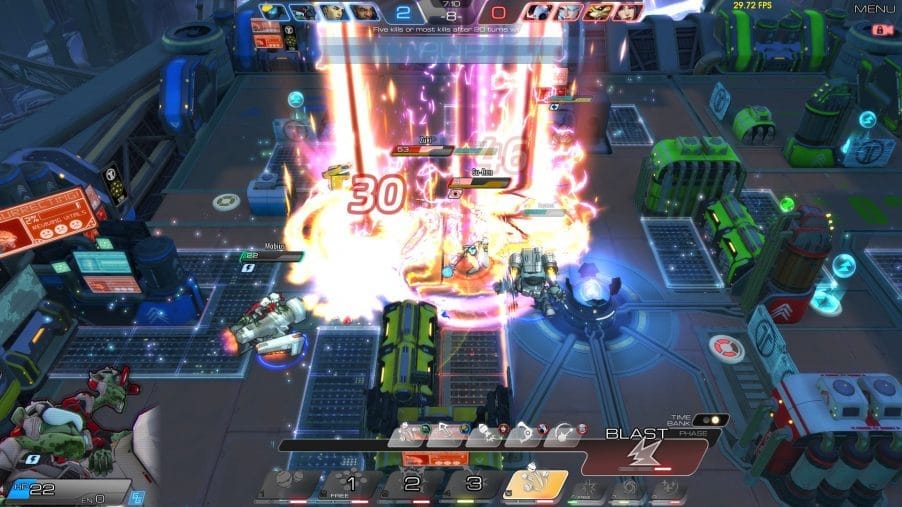
Positioning is vital in Atlas Reactor, but more for the reasons positioning is important in a chess game, rather than how it's important in a game of XCOM. In more than one way, Atlas Reactor plays exactly like chess, except the pieces are capable of exploding. You often look two or three turns ahead, maybe even five or six. You constantly change your tactics depending on how your enemies maneuver, and thinking of doing the most damage in whatever round you happen to be in at the moment is significantly less useful than attempting to damage someone badly three rounds later. Taking out a pawn because it happens to be sitting there, taunting you, is not going to win the game. This is most obvious once that pawn links it's lifeforce to yours and sucks you dry.
Each character you play will have a variety of different tactics and play styles broken down between the damage dealers, the damage soakers, and the supports. The characters in each category have a completely different way of achieving their goals, and you'll be in trouble if you decide because someone is in the category designed for soaking damage that it merely means you have plenty of health. Often, it's more that the character has abilities that can allow for immunities, regeneration, or mitigation of damage from one particular enemy instead of all of them. Supports might be based around healing, impairing the enemy, or making all your teammates really, really angry.
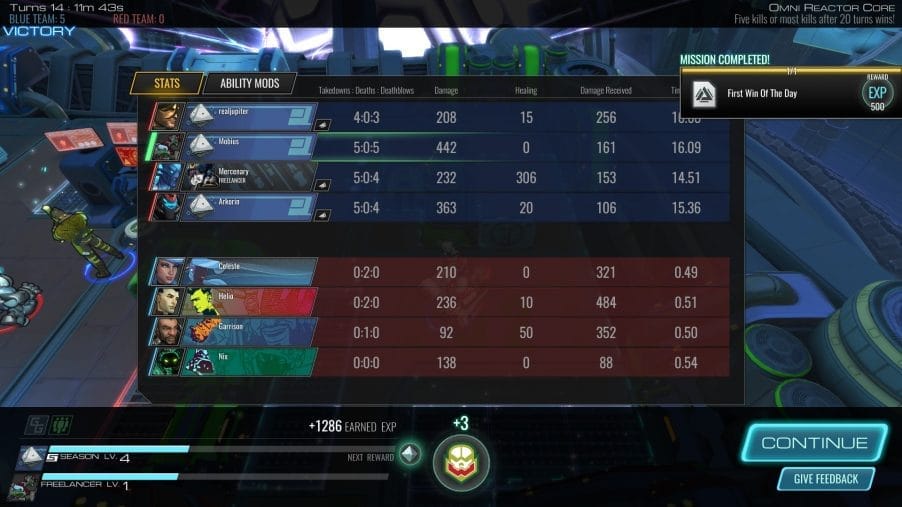
Beyond that, there are multiple levels of progression. When you play a particular character multiple times, you'll level them up, unlocking modifiers for your abilities, as well as skins, colors, banners, and even taunts. In addition to all this, you'll level your profile, increasing your abilities and in-game currency for purchasing cosmetic items you might want. Leveling your profile even tells more of Atlas Reactor's story, giving you missions to fulfill for extra experience in order to progress down the chapters. These missions are often simple objectives, such as playing a nuclear robot dog for a few matches, giving you objectives to increase replayability.
Further helping replayability is the rotating character choices. All Freelancers (the characters in the game) are available for free depending on what time of the month you decide to play. You're able to unlock all Freelancers for continual play by purchasing a few different options, but none of them can be purchased with in-game currency for a permanent unlock. While many might consider this a downside, I'm not upset about a game giving me all the options, but allowing me to narrow them if I pay them money. In the end, each character is unique and fascinating to play, and more limited options actually increase your overall experience count (as the first few level increases with a character are worth more to overall progression than later ones). If all characters were free, you'd find yourself in a rut, playing with the same experience over and over and over in a true grind. If you prefer a grind, you are welcome to pay for the privilege, but I have yet to be disappointed by the rotation.
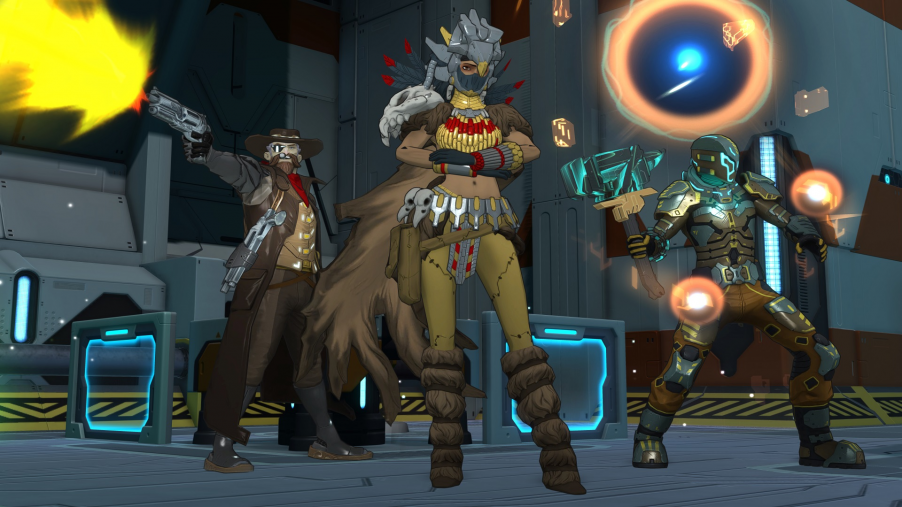
I'm an avid fan of complextro music, so I find the tunes in Atlas Reactor to be fantastic, but I'm bothered by the lack of variety. The menu music has been the same over my entire month with the game, and even I have started to be annoyed by it. The sound effects are also lackluster, using recycled assets I've heard in a dozen other games and movies. You'll recognize sounds like the "Pack-a-Punch" machine, or the beeps and whistles of computer hacking in NCIS. The menus underwent a large update while I was in the middle of playing Atlas Reactor, and a new system of backing competing companies was introduced, giving your the opportunity to increase your particular faction's power in return for cosmetic items and experience. This added a vital component to the meta-progression that I felt was lacking, creating a more competitive and team-based experience in more than just one level of the game.
Of all the comparisons Atlas Reactor gets, the one it's actually closest to is a living chess board where you play only one piece, and your piece is a mutated sabertooth tiger. Teamwork is nonverbal, fast-paced, and intrinsic for success. You think of the long-term, or you lose. Strategy, positioning, and a wise of use of your limited abilities will be the keys to success, and failing that, at least bluffing your enemy and creating havoc will save the day. Every game will be a surprise, and using the same strategies might work a few times, but improvisation and variety will be key to success here. This isn't your grandfather's chessboard. One of the pieces just turned invisible and God knows where he just went.
Atlas Reactor was reviewed on PC via Steam utilizing the free version of the game. Codes for the Ultimate Reactor Edition were provided by the publisher.
Review Summary
While the developers did not excel at capturing my attention until I had given it a few more chances than an average game, Atlas Reactor proves to be genuinely unique in it's style, and definitely suited for those looking for strategy without the clickfest.
(Review Policy)Pros
- Non-Verbal Communication with no Effort
- Unique Character Roster with Few Cliches
- Incredible amount of Depth and Variety
- Psychopathic Robot Dog
Cons
- Lackluster Sound Design
- Confusing and Difficult to Learn
- Tutorial is Practically Worthless
Have a tip, or want to point out something we missed? Leave a Comment or e-mail us at tips@techraptor.net
